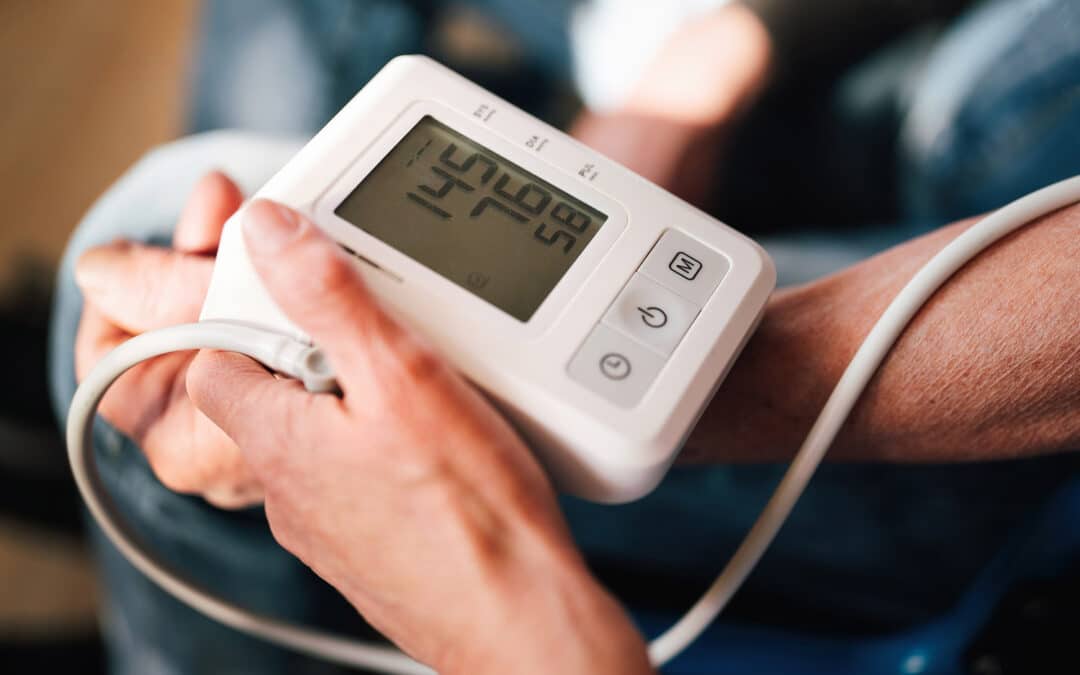Heart disease is the leading cause of death for women in the United States. We’re often reminded of this well-known fact before being encouraged to care for our health. As the old saying goes, “An ounce of prevention is worth a pound of cure,” which is true regarding heart health.
Heart disease in women is generally more prevalent than in men for several reasons that often go overlooked. If you’re concerned about your health or want to prevent heart problems, educating yourself is a great place to start. Read on to find out more.
Why is Heart Disease More Prevalent in Women Than in Men?
Heart disease has long been considered predominantly a man’s issue, but the reality is quite contrary. Heart disease is the leading cause of death among women in the United States, and it affects women of all ages. But why exactly is heart disease more prevalent in women than in men? The reasons for this are both biological and societal, varying from hormonal changes to lifestyle factors to healthcare disparities.
Biological Factors
- Hormonal Changes
Women go through several hormonal changes throughout their life, which can influence their risk of developing heart disease. For example, estrogen is known to protect the heart, keeping blood vessels flexible and helping manage levels of ‘good’ and ‘bad’ cholesterol. During menopause, estrogen levels drop significantly, causing an increase in heart disease risk among postmenopausal women.
- Pregnancy Complications
Conditions like gestational diabetes or preeclampsia during pregnancy heighten a woman’s long-term risk of heart disease. Both conditions are risk factors for future cardiovascular disease, even if blood pressure and blood sugar levels return to normal after delivery.
- Unique Symptoms
Women often experience different, subtler symptoms of heart disease than men do. Chest pain may not be as predominant, and symptoms like shortness of breath, nausea, and extreme fatigue may be dismissed as non-cardiac. Consequently, women may be underdiagnosed, leading to the progression of the disease.
Societal Factors
- Diagnosing
Women’s heart disease symptoms can be harder to recognize, leading to delays in diagnosis and treatment. Moreover, gender bias in healthcare means women’s symptoms can sometimes be dismissed as psychosomatic, leading to insufficient care and worse outcomes for women compared to men.
- Stress and Depression
Women are more likely than men to experience depression, and those with depression have up to a 64% greater risk of developing heart disease. Also, the stress of managing multiple roles—home, work, and caring for family—can adversely affect women’s heart health.
- Lifestyle Factors
Certain lifestyle factors, like inactivity, poor diet, and smoking, can also contribute to heart disease. However, it is worth noting that these are risk factors for both men and women.
In conclusion, heart disease is more prevalent in women due to a combination of biological and societal factors. Greater awareness and understanding of these unique factors are crucial for better preventing, diagnosing, and treating heart disease in women.
Symptoms of Heart Disease in Women
Knowing what to look for in the battle against heart disease could save your life. If the final stage is complete heart failure, it’s worth learning about the various bumps along the road that lead there. If you notice them as they appear and understand them for what they are, you might be able to turn off the road entirely.
Chest Discomfort
Chest discomfort takes many forms and shouldn’t be felt as a sharp pain indicating potential heart disease. Tightness, pressure, or a general squeezing sensation are all indicative of heart disease and should be viewed with appropriate caution. Ignoring these signs or otherwise brushing them off is a missed opportunity.
Shortness of Breath
Unexplained shortness of breath is another common complaint from sufferers of heart disease and one which should be taken seriously. Usually, we only feel short of breath after vigorous physical exercise, so it’s a powerful indicator that something is amiss and worth looking into.
General/Constant Fatigue
If you always feel tired and can’t figure out why, the problem could be your heart. This is especially concerning if you’re getting enough rest. If all the other areas in your life seem to align well and your fatigue has no obvious cause, it’s time to consult a health professional.
Unaccountable Pain
Heart disease sometimes manifests itself through pain in unlikely areas. These include the neck, jaw, throat, and upper back. Pain in the arm is also a likely indication of heart disease and should be checked out as soon as possible.
Nausea
Vomiting and abdominal pain akin to indigestion are common during a heart attack and are sure signs of a serious issue. Heartburn can also be an indication that your heart isn’t faring so well and a problem that medications such as Pepto Bismol can often disguise.
Disturbed Sleep
Cold sweats at night, as well as persistent insomnia and general restlessness while trying to sleep, are also possible symptoms of potential heart disease. If you’ve been struggling to sleep for a while, it’s best to seek an explanation rather than continuing to tough it out.
Anxiety
Unexplained or abrupt attacks of anxiety and panic are also symptoms of potential heart disease. If you’re usually a level-headed, confident person and have begun to suffer panic attacks for seemingly no reason, it may be time to consult a specialist.
Feeling embarrassed or unsure about seeking professional medical help is common, even with several of these issues. Rest assured that your questions regarding your health are legitimate and should be asked as soon as possible. The sooner you learn what you’re dealing with, the sooner you can recover.
Preventing Heart Disease
The prevention of heart disease usually requires a radical lifestyle change. This is the last thing anyone wants to hear, second only to learning that death is imminent. In comparison, making a change or two to continue living a contented and fulfilled life doesn’t seem like such a sacrifice.
Making a change to include heart-healthy activities does wonders for our bodies. We’re not built to sit around all day, and although it may feel challenging to start with, it takes little time to appreciate the endorphins released by living a more active lifestyle. One of the leading causes of heart disease is directly attributable to a sedentary lifestyle, and even something as simple as going for a walk can make all the difference.
Much of the strategy behind preventing heart disease is correctly identifying potential risk factors. Once identified, they can easily be rectified by making a few changes. These changes needn’t upset your life or be much of a nuisance. Minor changes are cumulative and often all necessary to prevent many heart disease risks from developing.
Cardiovascular disease (CVD) is usually something that develops little by little. The choices we make day by day can either contribute to its development or its prevention. A little awareness throughout our daily lives in consideration of our health is all that’s necessary to begin making the right choices.
The Importance of Healthy Eating
Our diet is the number one contributing factor to heart disease. More specifically, a poor diet is what causes high blood pressure and diabetes, the two leading health concerns which heart disease is typically borne from. The absolute number one food ingredient to avoid is sugar if you intend to halt or reverse the onset of heart disease
The prospect of changing a diet is challenging for many people to take seriously. After many years of eating more or less the same thing, or without restrictions, narrowing the food selection we allow ourselves isn’t easy. Fortunately, doing so is a genuinely effective solution that immediately provides tremendous benefits.
In simple terms, our bodies can’t cope with the amount of sugar we ingest and become damaged in the attempt. The market is flooded with foods designed to taste as good as possible without much concern for their detrimental effects on our bodies. The more palatable the food we buy, the more of it we’re likely to consume.
Too Much of a Good Thing
Unfortunately, this is a trap many of us fall into without ever considering it. The high sugar levels in our food contribute directly to oxidative stress, which thins the lining of our blood vessels. This leads to general inflammation of our circulatory system and all of its particulars, which, of course, includes the heart.
High levels of sugar consumption also cause insulin resistance, meaning our cells become less responsive to the mechanism that controls the storage and use of glucose, our body’s preferred energy source. Glucose begins to build up in our bloodstream, causing hyperglycemia, often leading to obesity and type 2 diabetes.
To prevent heart disease, completely removing sugar and complex carbohydrates from the diet is the best change you could make. We live in a world addicted to sugar, and the evidence that it’s killing us ought to be obvious, considering heart disease is the number one cause of death worldwide.
Book An Appointment With Vital Heart & Vein
If you’re worried about your heart health and want to consult a specialist, Vital Heart and Vein are here. We pride ourselves in delivering comprehensive therapies for a broad range of cardiovascular issues using the greatest and latest technologies available.
Heart disease in women, as in everyone, is a serious issue and one we’re well equipped to help you with. Don’t hesitate to contact us to schedule an appointment if you have reason to believe you’re suffering from heart disease; it’s what we’re here for!




